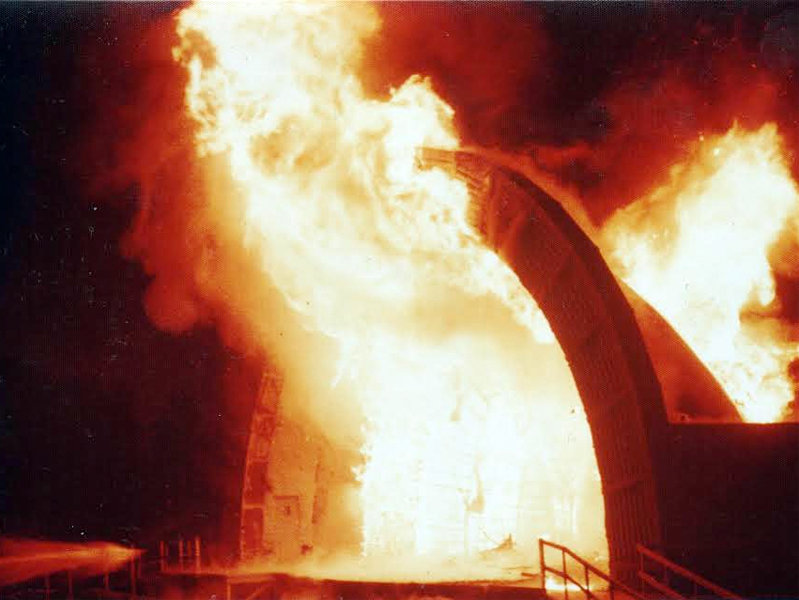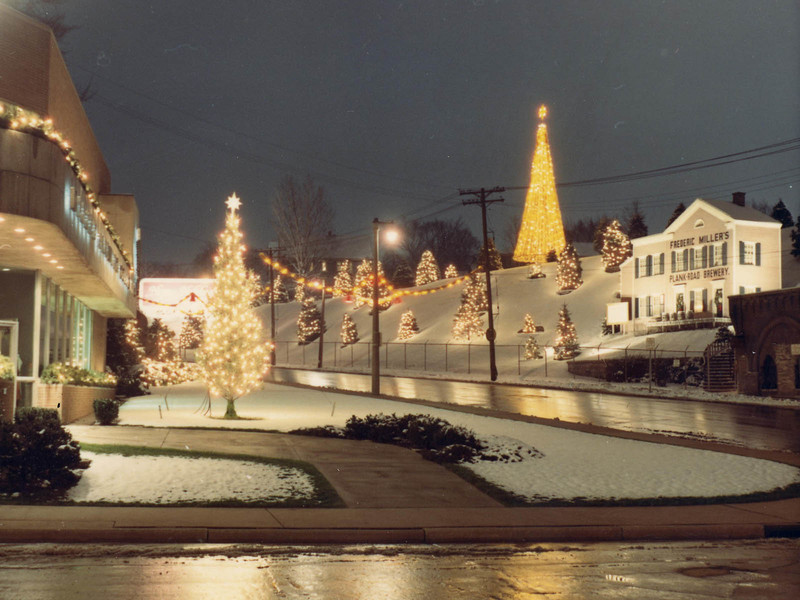The 600 North block of Broadway may be sleepy today, but in times past, it was quite the sizzling strip.
Marble Hall, one of the city's oldest buildings, most storied whiskey saloons and "the toniest gambling den in town," operated at 625-631 N. Broadway from 1867 to 1947. Founder Fred Snyder was a rugged pioneer: He survived both the Lady Elgin disaster and the Newhall House Fire, and hosted reunions for survivors every year until his death in 1897.
In time, the Old Hall became a big-league betting market, setting the odds for the entire city – on games, on races, on elections, on everything. Governors, businessmen, judges and councilmen brokered deals at the marble bar for decades.
Well-connected owner Alfred Pawinski didn’t take Prohibition too seriously – until he was fined $40,000 (adjusted 2016 dollars) and sent to jail for a year. While Marble Hall closed temporarily, celebrated bartender "Broadway Pete" set up a not-so-secret speakeasy above 625 N. Broadway that continued until 1933.
Liquor returned later that year, but business was never quite the same. "Whiskey that the old patrons would have scorned now passes over the bar," said critics. The gig was up. In 1947, the last incarnation of Marble Hall (631 N. Broadway) was absorbed into the long-running Phillip's Cafeteria next door.
"Perfect ladies never gathered there," remembered The Milwaukee Journal. "Marble Hall was exclusively a masculine preserve."
And that's exactly the vibe Marvin and Harold Klein were gambling on.
On Aug. 5, 1958, Phillip's Cocktail Lounge closed for remodeling. Marble floors and fixtures were covered with red velour; ancient brass fixtures were replaced with soft pink sconces. "(The manager) says he's going to try to build up the night business," said the Milwaukee Sentinel. "Anyone who knows how dead N. Broadway is after 8 o'clock can realize this is a stupendous undertaking."
Two weeks later, the Pink Glove opened for business. Decades ahead of its time, it is believed to be one of the first "concept" gay bars in Milwaukee. Rather than just a place where gay men gathered, the Pink Glove deliberately marketed to the gay community.
"[Marvin Klein] pointed out that homosexuals were orderly people and usually good spenders," reads an FBI report from the era. "He brought in a gay couple from Chicago to promote the idea of a gay bar ... He denied that the Pink Glove was part of a national operation catering to homosexuals. He did state, however, that pink is a color used as a signal for sex deviates."
Wisconsin LGBT History Project contributors remember that white and black men openly mingled at the Pink Glove – years before this was socially acceptable elsewhere in Milwaukee.
The Pink Glove made an astonishing $15,000 (adjusted 2016 dollars) in its first week. Business was good. There was just one problem: The remodel came at a higher cost than the Kleins expected.
FBI reports state that the Kleins received remodel assistance from sponsors of "Italian and Jewish extraction." Based on witness reports, emerging crime boss Frank Balistrieri may have been one of those sponsors.
One week after the Pink Glove opened, FBI agents reported that Balistrieri was "sending men into the bar to check the cash register." On Sept. 4, 1958, Marvin Klein and Frank Balistrieri were seen arguing at the Belmont Hotel. Soon after, Milwaukee police began bombarding the bar with raids.
Marvin Klein had already been under strict license review due to his association with "amusement machine distributor operations." In October 1957, he rescued his liquor license by promising to "divorce" himself from the 48 jukeboxes he operated in town. Why would the Common Council even care about jukeboxes? At the time, organized crime syndicates operated most jukebox, cigarette and vending machines, and often used these licenses to strong-arm bar takeovers from within.
In 1958, businesses could lose their licenses just for allowing homosexuals to congregate. Any evidence of "deviate behavior" – something as innocent as two male strangers sitting next to each other at a bar – was enough to justify police attention. Anything more physically intimate could result in violence, arrest, shame and life-changing defamation. Within eight weeks, the Pink Glove had gone from an unusually safe space to a definite danger zone.
Ultimately, the City of Milwaukee ordered the Pink Glove to close or face further charges. The bar closed forever on Oct. 25, 1958, and Klein relinquished his liquor license to the Common Council on Nov. 11, 1958.
"[Marvin Klein] fully expected the police to close the place up in time," said an FBI informant. "He could have avoided this situation if he had paid the right people, but he made no attempt to do so." The FBI noted that Tony's Riviera Cocktail Lounge (401 N. Plankinton) had operated from 1952-1964 as a well-known gay bar without any known police intervention.
Freddy Jordan, former owner of the Empire Lounge (716 N. Plankinton Ave.,) took over the operation. In February 1959, a completely remodeled bar and grill opened at 631 N. Broadway. Not even a hint of pink was left behind.
Seven known gay bars operated in 1950s Milwaukee. While no trace of the other six LGBTQ landmarks remains, the long-vacant Pink Glove – open only for 67 troubled days in 1958 – awaits its next adventure at 631 N. Broadway.
Explore decades of Milwaukee’s hidden history at the Wisconsin LGBT History Project website, supported by Milwaukee Pride, Inc.







